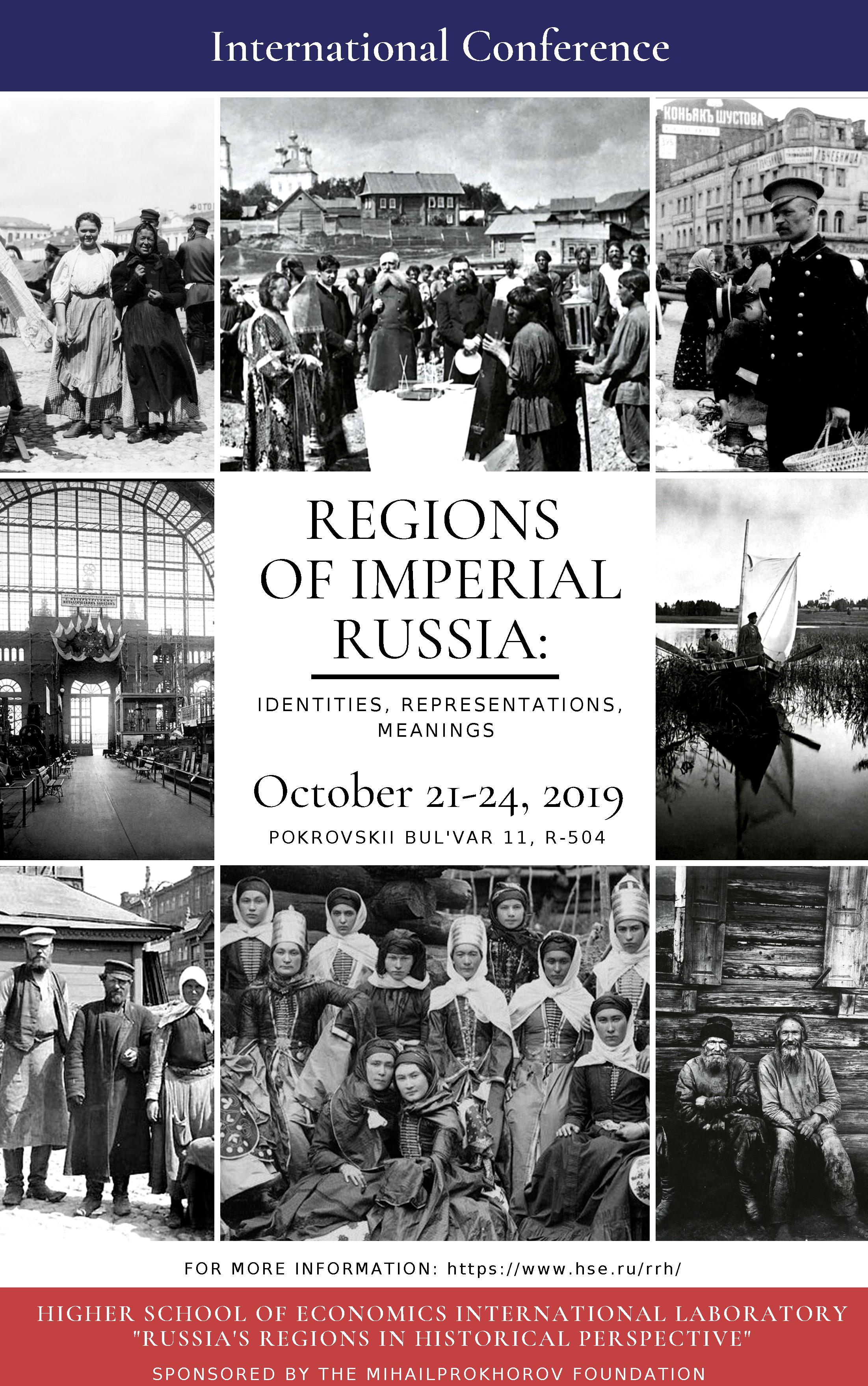October 21-24. International Conference 'Regions of Imperial Russia: Identities, Representations, Meanings'
International Laboratory 'Russia’s Regions in Historical Perspective' organizes the international conference 'Regions of Imperial Russia: Identities, Representations, Meanings' which will be held at HSE Moscow on October 21-24.

Modern Russia is often seen as a patchwork quilt of ethnic, linguistic, socio-cultural and economic diversity, but the regional diversities of the country are no less striking. Very often, however, these regional particularities end up being reduced in common discourses to the familiar and oversimplified binaries of “center” vs. “periphery,” rich territories vs. poorer ones, or regions of geopolitical primacy vs. those with seemingly little or no policy significance. Furthermore, Russia has long been cast as a country of two “capitals,” both of which loom large as centers of culture, while the rest of the state regularly appears simply as “the provinces.”
Convinced there is a good reason to rethink these longstanding paradigms, our international conference seeks to bring together scholars interested in offering fresh perspectives on the identities, representations, and meanings of regions and regionality in the Russian experience, in particular during the imperial era (1700-1917). Our main concern is with how regions were defined during this formative period and at the same time how they evolved as frames for shaping a diverse range of social, cultural, and political practices and identities.
Topics of interest include but are not limited to:
- Patterns related to the definition and symbolic and practical representation of regions and regional populations from the early 18th to the early 20th centuries;
- Terminological questions, including investigations of the meaning and usage of terms such as “region,” “oblast’”, “krai,” etc.;
- The perceived interrelationship and practical interconnectedness of regions (Central Russia vs. the steppe or the North; Siberia vs. the Far East, etc.);
- The shifting meanings of regional constructs (e.g., the North, the South, East, West, Europe, Asia, borderland, periphery, frontier, colony, center, metropole, alternative capital, province, “the provinces,” etc.);
- Geographical and geoenvironmental factors shaping regional definition and development (viz. the Black Sea region, the taiga, the Volga region, the “land around the Amur” [priamur’e]) Historical onomatology and the geographical imaginary (mental maps);
- Regional history and urban space. Regional capitals. The political meanings of Russian regions.
Conference languages – Russian and English
Conference Committee Co-Chairs: Ekaterina Boltunova and Willard Sunderland
The conference programme is available:
Programme (PDF, 540 Кб)
If you have any questions, feel free to contact Natalia Beresneva (nberesneva@hse.ru)
